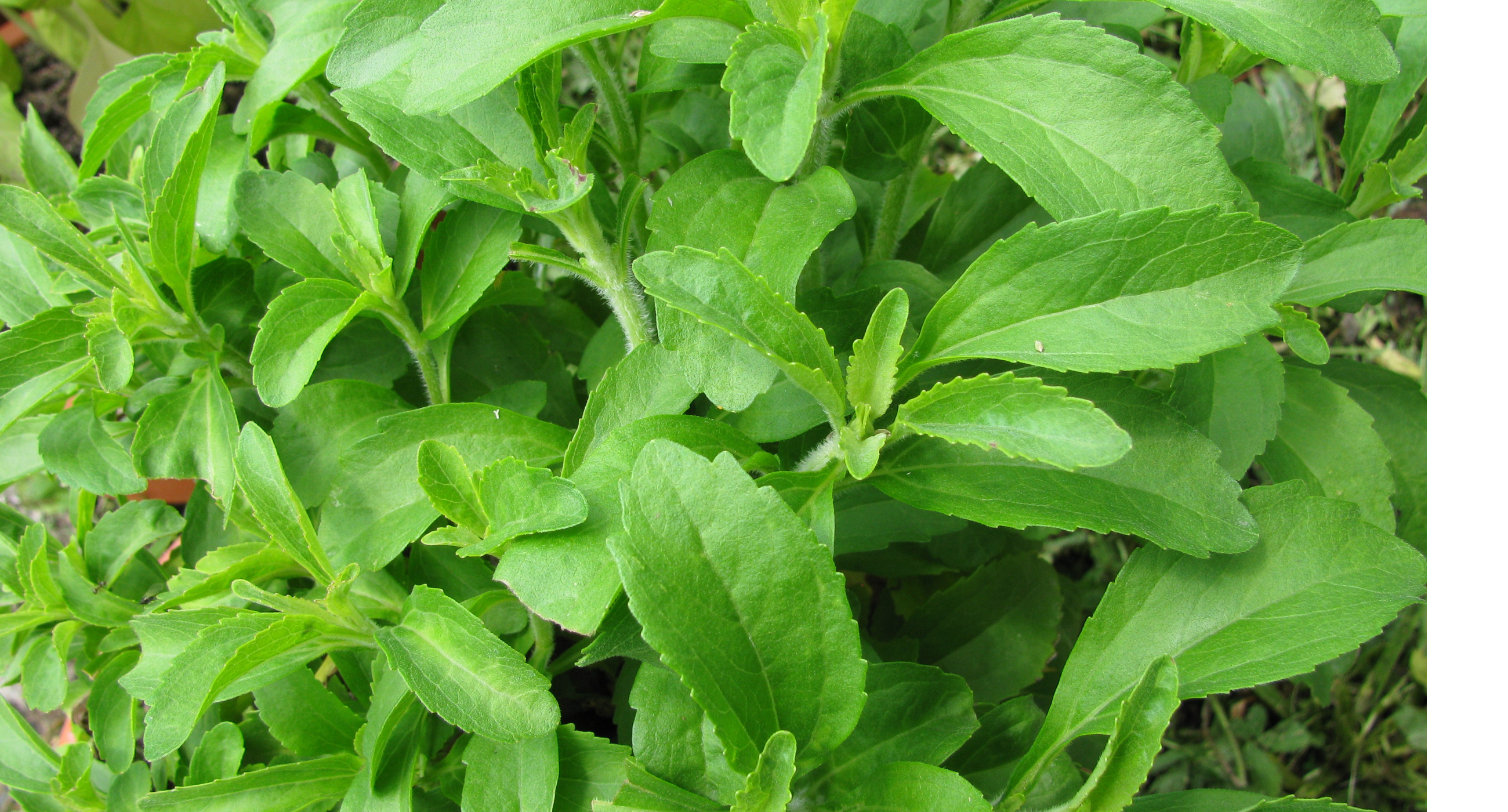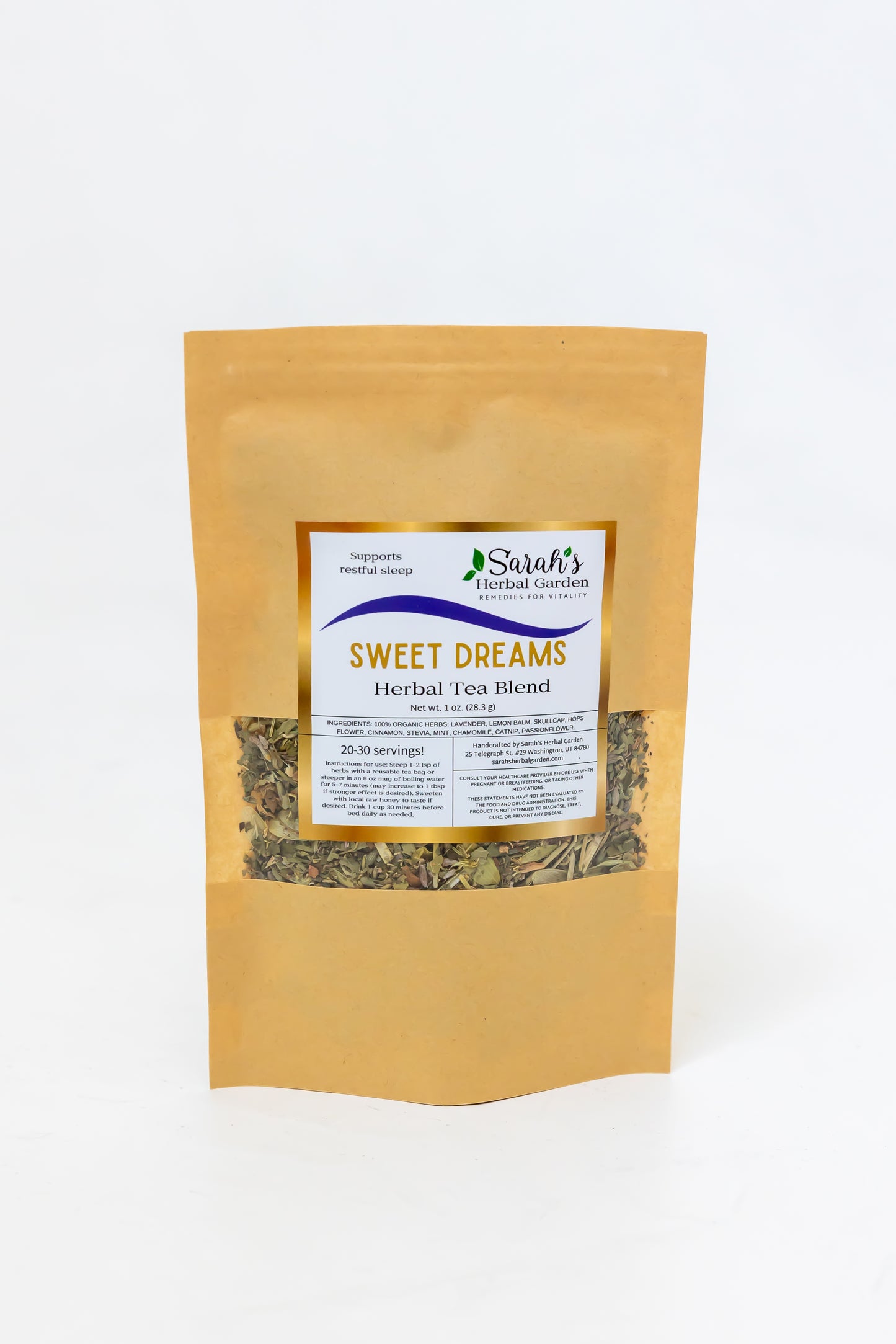
Stevia Leaf
Scientific Name: Stevia rebaudiana
Herbal Profile of Stevia Leaf (Stevia rebaudiana)
Common Name: Stevia, Sweet Leaf, Sugar Leaf
Botanical Name: Stevia rebaudiana
Family: Asteraceae (Daisy family)
Description:
Stevia is a small, perennial herb native to South America, particularly Paraguay and Brazil. It is well-known for its naturally sweet leaves, which have been used for centuries as a natural sweetener and herbal remedy. Stevia leaves contain compounds that are up to 300 times sweeter than sugar, yet it has no calories and does not affect blood sugar levels, making it a popular sugar substitute.
Key Constituents:
- Steviosides: The primary sweet compounds in Stevia, responsible for its intense sweetness and many of its health benefits.
- Rebaudiosides (A, C, D, E): Contribute to the sweet taste of Stevia but with less bitterness compared to steviosides.
- Flavonoids: Provide antioxidant effects and support overall health.
- Chlorophyll: Supports detoxification and provides anti-inflammatory properties.
- Tannins: Offer mild astringent and antioxidant effects.
Medicinal Uses:
- Natural Sweetener and Blood Sugar Regulation:
- Weight Management:
- Antioxidant and Anti-inflammatory Properties:
- Heart Health:
- Oral Health:
- Skin Health:
- Digestive Health:
Forms of Use:
- Fresh or Dried Leaves: Stevia leaves can be used fresh or dried in herbal teas or as a natural sweetener for beverages and foods. The leaves can be added directly to drinks or food for a mild sweet taste.
- Stevia Extract (Liquid or Powder): Stevia extracts are the most commonly used form of the herb, particularly in liquid or powdered form. These extracts are much sweeter than sugar and are used in small quantities as a sugar substitute in cooking, baking, and beverages.
- Stevia Tincture: Alcohol-based tinctures made from Stevia leaves can be used as a natural sweetener or as a medicinal extract to support blood sugar regulation and digestive health.
- Stevia Blends: Stevia is often mixed with other natural sweeteners like erythritol or monk fruit in commercial products to provide a more balanced, sugar-like sweetness.
Precautions:
- Bitter Aftertaste: Some people may experience a slightly bitter aftertaste when using Stevia, especially with certain types of Stevia extracts. This can vary depending on the form and concentration of the extract.
- Allergies: Although rare, individuals allergic to plants in the Asteraceae family (such as ragweed, daisies, or marigolds) should use caution when using Stevia, as allergic reactions may occur.
- Hypoglycemia: Individuals with hypoglycemia (low blood sugar) should monitor their blood sugar levels when using Stevia, as it may enhance the effects of blood sugar-lowering medications.
Growing and Harvesting:
- Climate: Stevia grows best in warm, sunny climates with well-drained soil. It is a frost-sensitive plant, so it should be grown in warm, temperate, or tropical regions or indoors in colder climates.
- Planting: Stevia can be grown from seeds or cuttings. It prefers full sun and should be watered regularly, though it should not be overwatered. It can be grown in gardens or in pots.
- Harvesting: The leaves are harvested in late summer or early fall when they are most potent. The leaves can be dried and stored for later use or used fresh. The sweetest leaves are often harvested just before the plant begins to flower.
Traditional and Historical Uses:
- South American Indigenous Medicine: Stevia has been used by the Guaraní people of Paraguay and Brazil for centuries as a natural sweetener and as a medicinal herb to treat various ailments, including digestive issues and high blood pressure.
- Modern Use: In the 20th century, Stevia gained popularity as a natural sugar substitute in Japan and later spread to other parts of the world, including the United States and Europe. It is now widely used as a natural, non-caloric sweetener in foods, beverages, and dietary supplements.
Stevia is a versatile herb, primarily known for its natural sweetness and its use as a sugar substitute. Its unique ability to regulate blood sugar without adding calories makes it a popular choice for individuals with diabetes or those looking to reduce sugar intake. In addition to its sweetening properties, Stevia offers antioxidant, anti-inflammatory, and digestive benefits, making it a valuable addition to both culinary and medicinal practices.
Sarah's Herbal Garden
Sweet Dreams {Herbal Tea Blend for Sleep}
Share


